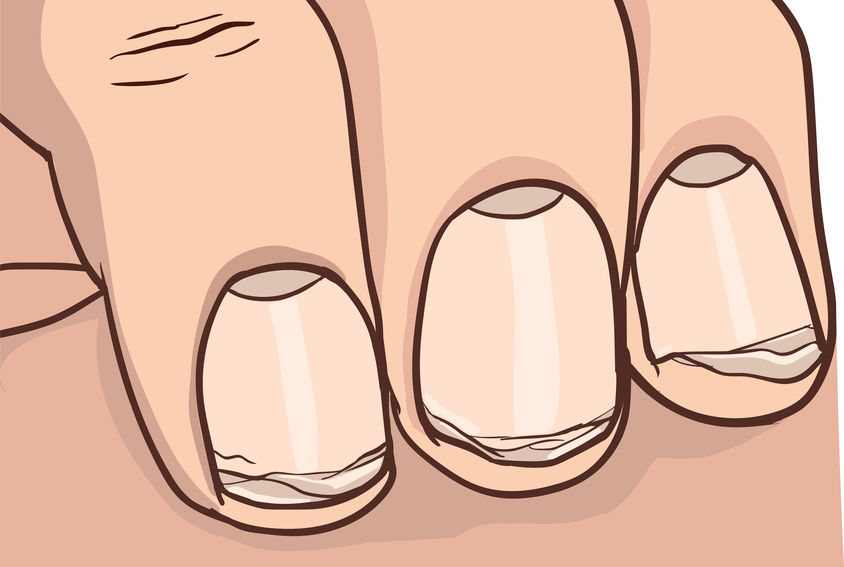Protein is one of the macronutrients you simply cannot skimp on. Much like a builder cannot lay the foundation, build, or repair without cement, our bodies cannot function without protein. It is the very building blocks that connect and hold our tissues, bones, and muscles together. When we pull a muscle or cut ourselves, protein is what sews us back together. It plays an essential role in hormones, cells, enzymes, and skin… without it, the body would not be able to function properly at all.
The good news is that a full-blown protein deficiency is rare in most developed countries and is usually common in places where food is scarce. But that doesn’t mean you are not at risk. If you are not meeting your protein quota every day, it can impact your health over time.
Here are a few ways to tell if you are not eating enough protein.
Who Is At Risk Of Developing A Protein Deficiency?
We get most of our protein from animal products and plants and many other whole food items. But each source provides a different type of protein. Proteins are made up of different amino acids that are joined together to form a long chain. There are 20 types of amino acids, which are arranged in a variety of sequences to form specific proteins. Each “strain” of protein plays a different role in the body, for example, some proteins like collagen are responsible for the formation of skin, hair, and bones, while other proteins are involved in circulating molecules throughout the body. This is why it is important to eat a wide variety of protein-rich foods in order to reap the benefits of every single type of protein.
But considering that so many different types of foods contain high amounts of protein, it is understandable why a true protein deficiency is rare in developed countries. The most severe type of malnutrition caused by inadequate amounts of protein is called kwashiorkor and is often seen in poor countries where food is scarce. While kwashiorkor is rare in most parts of the Western World, many people still do not meet the recommended daily intake of protein and certain groups of people are more at risk of developing negative side effects like muscle loss and other imbalances in the body.
These groups who are more at risk include:
- Those suffering from anorexia.
- Certain cancer patients.
- Individuals following a restrictive eating plan or a solely plant-based diet.
- Older adults who have been institutionalized or hospitalized.
- Individuals who have unhealthy eating habits.
How Much Protein Do You Need?
The amount of protein required for each individual varies depending on how active you are, your current state of health, age, and gender, but generally about 0.8 grams of protein per pound of bodyweight or at least 10% of your daily calories should be made up of protein. To work this out in grams, record your weight (in pounds) and multiply it by 0.36. For athletes, your protein intake should be around 0.9 grams of protein for every pound of body weight.
If you feel you have a few of the symptoms listed below and have been eating the recommended daily intake of protein, you can consult your doctor or dietitian to help determine the right amount of protein based on your body composition and activity levels.
Common Signs Of A Protein Deficiency
1. Puffy Or Swollen Limbs
One of the first indicators of a protein deficiency is puffy skin and localized swelling, or also known as edema. Edema causes swelling in the feet, abdomen, arms, legs, and hands. One of the main reasons this happens is due to fluid build-up caused by insufficient levels of a protein called serum albumin. This protein is vital for maintaining oncotic pressure, which is when fluids are drawn and circulated in the blood. This helps to prevent excess fluids from building up in the tissues. Without serum albumin, oncotic pressure is significantly reduced and as a result of that, fluids start to accumulate in the tissues, which causes swelling.
2. Problematic Skin, Hair, And Nails

The hair, skin, and nails are made up of various types of proteins including collagen, elastin, and keratin. The abnormalities in your hair, skin, and nails are usually the first sign of a protein deficiency. Hair starts to thin, nails become dry and brittle, and in severe deficiencies, the skin becomes extremely dry, begins to split, and forms patches of red or discolored patches all over the body.
3. Increased Cravings
If you find yourself digging around the fridge often or constantly feel hungry, it may mean you are not eating enough protein. When you eat a protein-rich meal, it not only helps to give you the energy you need to fulfill physical tasks but also keeps you feeling fuller for longer. When your body starts to run low on protein, it stimulates your appetite so that it can restore protein levels back to normal.
4. Reduced Muscle Mass
Your muscles are the primary storage facility for the protein in your body and when there is a shortage, your muscles are usually the first reserve the body goes to in order to fulfill it’s protein requirements. When there is a lack of protein from your diet, even in the slightest, the body starts to break down protein in the skeletal muscles and uses it for other cells, organs and tissues that are more important, which can lead to a loss of muscle mass.
Studies have actually revealed that eating adequate amounts of protein can prevent muscle decline in your later years.
5. Moodiness
Generally, one of the first signs of any nutrient deficiency is a rapid change in mood. Protein plays a very important role in the production of various chemicals like neurotransmitters – little control centers on the brain that sends out signals and messages to the rest of the body.
If there is not enough protein to generate and regulate neurotransmitters, it affects the way the brain functions and communicates with the rest of the body. For example, if the neurotransmitters responsible for triggering happy hormones like dopamine and serotonin are not functioning correctly, it could leave you feeling sluggish, depressed, or angry.
6. Weakened Immune Defenses
Any form of nutrient deficiency comes with its own set of problems, but the common link between all of them is a weakened immune system. While other nutrients contribute towards keeping immune cells active and healthy, proteins in the blood actually form vital antibodies that we need to fight off toxins, pathogens, and infections. Without these antibodies, it takes a lot more time to recover than it would when antibodies and other immune cells are functioning properly.
With a protein deficiency, it may take weeks to recover from the flu or bacterial infection instead of a couple of days. We also require protein in order to breakdown and absorb other nutrients in the gut to help keep our immune systems strong and healthy.

